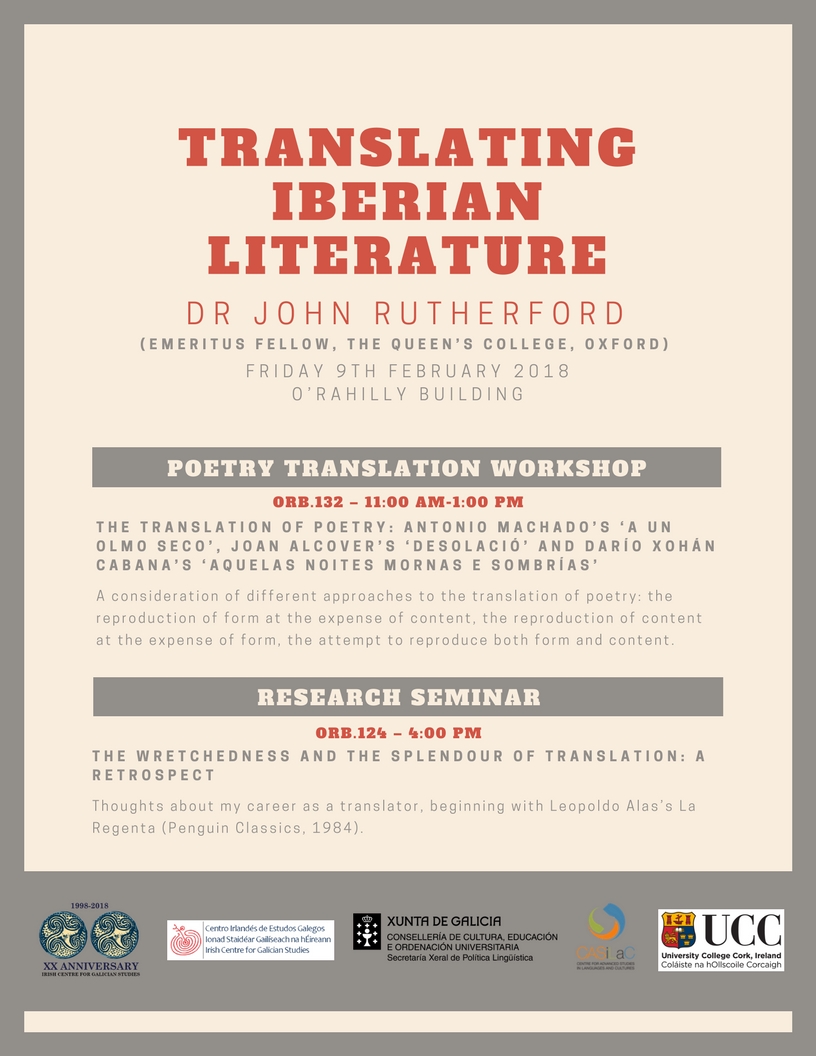2018. February 9th. Rutterford

Dr John Rutherford will offer different approaches to the translation of Iberian poetry
Poetry translation workshop
ORB.132 – 11:00 am–1:00 pm
The translation of poetry: Antonio Machado’s ‘A un olmo seco’, Joan Alcover’s ‘Desolació’ and Darío Xohán Cabana’s ‘Aquelas noites mornas e sombrías’
A consideration of different approaches to the translation of poetry: the reproduction of form at the expense of content, the reproduction of content at the expense of form, the attempt to reproduce both form and content. Poems in Castilian, Catalan and Galician will be considered, but knowledge of these languages is not strictly required, as English translations will be provided.
******************************************
Research seminar
ORB.124 – 4:00 pm
The wretchedness and the splendour of translation: a retrospect
Thoughts about my career as a translator, beginning with Leopoldo Alas’s La Regenta (Penguin Classics, 1984).
Dr John Rutherford is Emeritus Fellow of the Queen’s College at Oxford University, where he taught Spanish, Spanish-American, and Galician language and literature for more than forty years. He founded and directed the Centre for Galician Studies at Oxford, he was president of the International Association of Galician Studies (AEIG) and is an honorary member of the Real Academia Galega. In addition, he was appointed as doctor honoris causa by the Universidade da Coruña and received some of the most prestigious awards of Galician culture, such as the Medalla Castelao, the Pedrón de Honra, and the Premio Trasalba. Apart from publishing academic work on a wide range of topics, most notably the monograph The Power of the Smile: Humour in Spanish Culture (Francis Boutle Publishers), he has translated into English Don Quixote (Penguin Classics), La Regenta (Penguin Classics) and other works in Spanish and Galician. His latest book is The Spanish Golden Age Sonnet (University of Wales Press), which collects translations of over a hundred of the finest sonnets of the Spanish Golden Age and includes detailed critical commentary on each of the poems.
Irish Centre for Galician Studies
Contact us
O'Rahilly Building First Floor - Block B East Room 1.55
